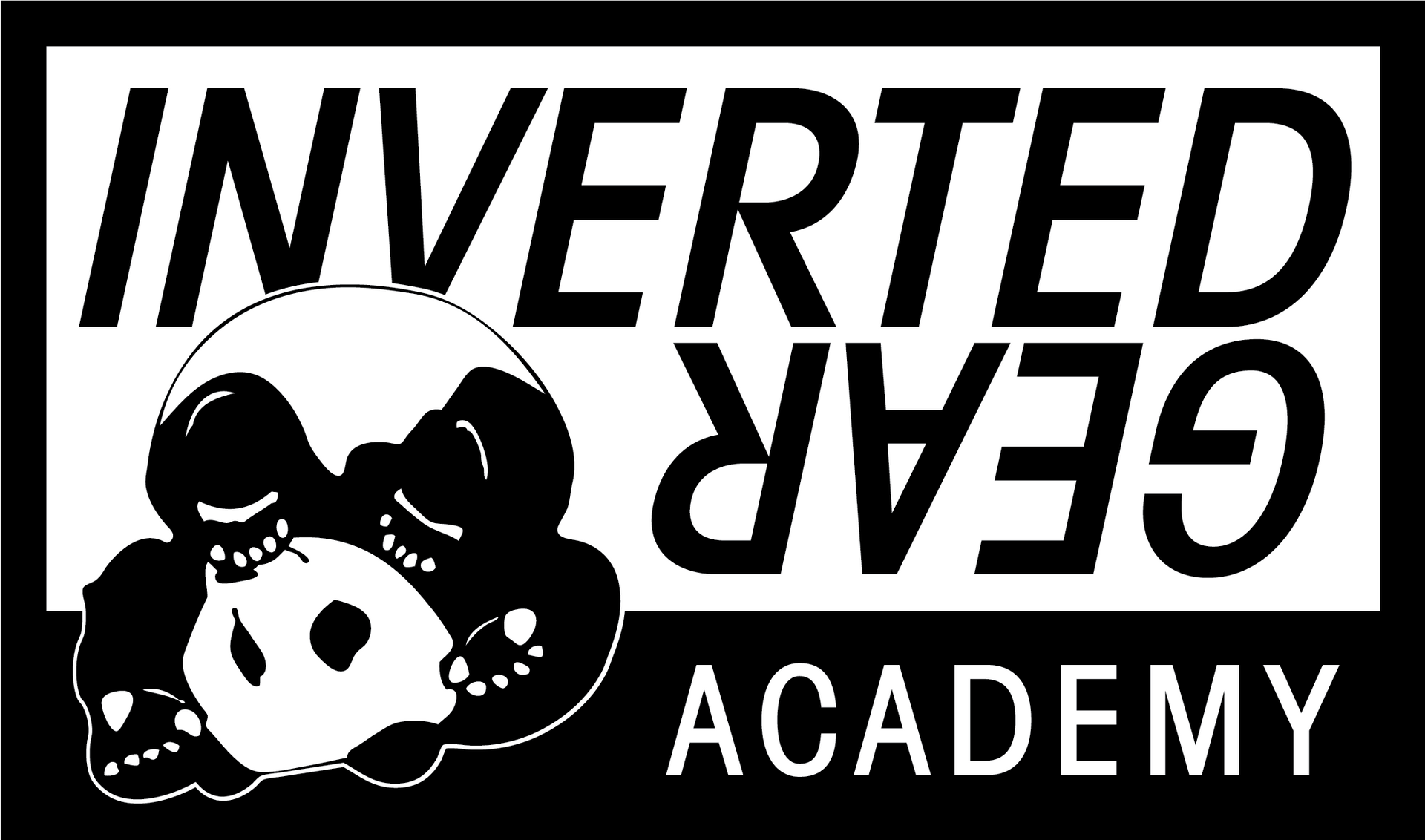ABOUT US
Inverted Gear Academy is located at:
1114 W Broad St,
Bethlehem, PA 18018
We are located around back in the lower level. The academy entrance is at the rear of the building facing Raspberry St.
The upper level is occupied by our friends at Mobility Doc, a chiropractic and physical therapy practice. If you come in the front door by Mobility Doc, head straight back and downstairs to find us.
Our entrance is on the opposite side of the building from this door.
WHERE TO PARK?
When visiting our academy, you’re welcome to use the parking spaces in the lot, but we recommend choosing the ones closer to our building for your convenience. While other spots in the lot are also available, please avoid parking in areas reserved for neighboring businesses. Additionally, street parking is an option along Broad St, 10th Ave, and 11th Ave. Thank you for considering our parking guidelines to ensure a smooth experience for everyone visiting our academy.

About
Inverted Gear AcademY
Our Philosophy
We believe that Jiu-Jitsu is a vehicle for self-improvement. Whether you’re seeking confidence, self-discipline, fitness, or stress relief, our academy offers a path that meets you where you are. With roots in traditional Brazilian Jiu-Jitsu and a culture of humility, respect, and technical excellence, we aim to create a welcoming space for beginners and experienced grapplers alike. We focus not just on winning, but on growing.
Who We Serve
From children learning their first takedown to adults rediscovering their physical capabilities, we welcome everyone. Our kids martial arts program teaches life skills, self-control, and bully-proof confidence. Our adult classes offer a fun, safe, and challenging way to get in shape while learning practical self-defense. And for those with competitive aspirations, our advanced training program prepares students for success on the tournament scene.
Why Inverted Gear?
We’re proud to carry the Inverted Gear name—a brand known globally for innovation, integrity, and high-level Jiu-Jitsu. Our coaches are experienced, passionate, and deeply invested in student development. We’ve created a facility that’s clean, well-equipped, and designed to support learning at every level. But what truly sets us apart is our culture: inclusive, driven, and community-first.
A Place to Belong
At Inverted Gear Academy, you’ll find more than a workout. You’ll find mentorship, camaraderie, and purpose. Our students support one another, push each other to improve, and celebrate every milestone together. If you're looking for a BJJ academy in Bethlehem that feels like home, you’ve found it.
Join Us
Ready to begin your Jiu-Jitsu journey? Come visit our academy, take a free trial class, and meet the people who make Inverted Gear Academy special. We’re here to help you grow stronger, more confident, and more resilient—one class at a time.

INVERTED GEAR ACADEMY FAQs
What is Brazilian Jiu-Jitsu?
Brazilian Jiu-Jitsu is a martial art that focuses on grappling and ground fighting. The art developed out of the early judo that made its way to Brazil around 1914, where practitioners like the famous Gracie family refined it over the next century. BJJ became known to the rest of the world in the 1990’s when Royce Gracie won the first UFCs with ground fighting and submission holds. Since then, BJJ has remained a major part of mixed martial arts (MMA) and has developed internationally as a sport and hobby.
What should I bring to my first class?
You should read the quick start rules which will help everything go smoothly:
Don’t wear shoes on the mats. Wear shoes when off the mats, especially in the bathroom.
Remove all jewelry, including earrings, rings, necklaces, and wristwatches. Tie back long hair.
Let the instructor know if you have any health concerns or injuries to be aware of.
Ask an instructor for help if you have any questions or don’t understand anything.
Let an instructor know whenever you leave the mats, such as when going to the bathroom or leaving early.
Shower as soon as you get home and wash your training gear right away.
What do I need to know before my first class?
You should read the quick start rules which will help everything go smoothly:
Don’t wear shoes on the mats. Wear shoes when off the mats, especially in the bathroom.
Remove all jewelry, including earrings, rings, necklaces, and wristwatches. Tie back long hair.
Let the instructor know if you have any health concerns or injuries to be aware of.
Ask an instructor for help if you have any questions or don’t understand anything.
Let an instructor know whenever you leave the mats, such as when going to the bathroom or leaving early.
Shower as soon as you get home and wash your training gear right away.
I don’t own a gi. Do I need to buy one to do class?
For your trial class at our academy, it’s important to wear a gi (jiu-jitsu uniform), and we’ve got you covered! We provide a loaner gi for your first class, so you don’t need to worry about having your own right away. This way, you can fully experience the class as you would in your regular training.
What is a typical class like?
Fundamentals Class: Dive into an hour-long session focused on basic drills and a constraint-led approach to games. This class is meticulously designed to ensure a deep understanding and practical application of BJJ fundamentals in an engaging and dynamic way.
Advanced Class: Building on the foundation, the advanced class also runs for an hour and introduces more complex techniques, following a similar drill and games approach. A key component of this class is the inclusion of sparring sessions, allowing students to apply their skills in real-time scenarios, under the guidance of our experienced instructors
Do you offer a free trial?
Absolutely! We welcome newcomers with open arms. Dive into the world of BJJ with a complimentary intro class and a 1-day trial membership. It’s the perfect way to get a feel for the art and our academy. Sign up here
Do I need to be in shape to start BJJ?
No, you don’t need to be in top physical shape or have any martial arts background to begin your BJJ journey. In fact, our classes are the perfect starting point to get fit. Through regular attendance, participation in warm-ups, drills, and live training sessions, you’ll naturally improve your fitness. Our beginner’s program is specifically designed to gradually develop your physical, technical, and mental abilities, starting from any level. Plus, our coaches are always ready to suggest additional exercises and stretches that you can do at home to complement your training. So, no matter where you’re starting from, we’re here to guide and support your growth in BJJ.
I’m over 40. Am I too old to start BJJ?
No, that’s not too old! Many of our students found BJJ later in life and really enjoy it. The first months can be challenging for anyone (at any age), but our beginner's program is designed to prepare students of any age, experience level, or fitness level. If you want to be smart about training for longevity, you’ll need to listen to your body (rest if you need it), not push yourself too hard too soon, and communicate with your training partners so you’re matching the right intensity.
Can women train Brazilian Jiu-Jitsu?
Absolutely, women can and do excel in Brazilian Jiu-Jitsu! BJJ is an incredibly empowering martial art for women, offering a unique blend of self-defense skills, fitness improvement, and the opportunity to compete in tournaments. It’s also a great way to be part of a supportive community. The beauty of BJJ lies in its focus on technique and finesse rather than sheer strength or size, making it an ideal martial art for women of all sizes and strengths. Many women find BJJ a rewarding way to enhance their physical capabilities while building confidence and camaraderie.
Can I wear a gi with patches from another school or affiliation?
Yes, you can wear a gi with whatever patches! Your gi can be any color, too. As a BJJ Globetrotters academy, we believe in welcoming anyone to come train, regardless of affiliation or academy. Read more about that below.
What does it mean to be a BJJ Globetrotters affiliate?
BJJ Globetrotters is a world-wide community of traveling jiu-jitsu practitioners who run camps and schools across the globe. All of our instructors have been deeply involved with BJJ Globetrotters camps. We believe in the BJJ Globetrotter values:
We don’t pay each other any affiliation fees
We wear any patches we like on our gis
We are free to represent any (or no) team in competition
We encourage training with anyone regardless of affiliation
We are willing to promote anyone who deserves it—members or not
We arrange camps, seminars and visit each other for training and fun
We believe everyone is equal both on and off the mats
We strive to enjoy life, people and the world through Brazilian Jiu Jitsu
Can I cross-train at other schools?
Absolutely, cross-training at other schools is encouraged! We fully support the BJJ Globetrotter values of openness and learning through diverse experiences. At Inverted Gear Academy, our instructors have developed their skills by training with a wide array of people from across the globe. We believe that exposure to different styles and techniques enriches your learning experience and broadens your perspective in Brazilian Jiu-Jitsu. Feel free to explore and train with various partners and schools – every new encounter is an opportunity for growth and learning in the BJJ community.
What are the BJJ belt ranks?
The adult belt ranks are white, blue, purple, brown, and black. Each belt below black can earn up to four stripes. Black belts earn degrees based on time. At 7th degree, the black belt becomes black/red. An honorary 10th degree red belt is reserved for Brazilian Jiu-Jitsu’s founders and original practitioners.
How long does it take to get a BJJ black belt?
The average time to earn a BJJ black belt is about 10 years. Each belt promotion usually takes 2-3 years. Some people earn belts much faster, and some take much longer. Each person is on their own BJJ journey. Instead of worrying about the color of your belt, it’s best to focus on how to better yourself and your training partners each time you step on the mats.
Not at all. Competition is optional, though we do encourage trying it at least once. Many find it a rewarding experience that enhances their skills and confidence. However, whether you compete or not, our coaches are committed to helping every student reach their highest potential.

